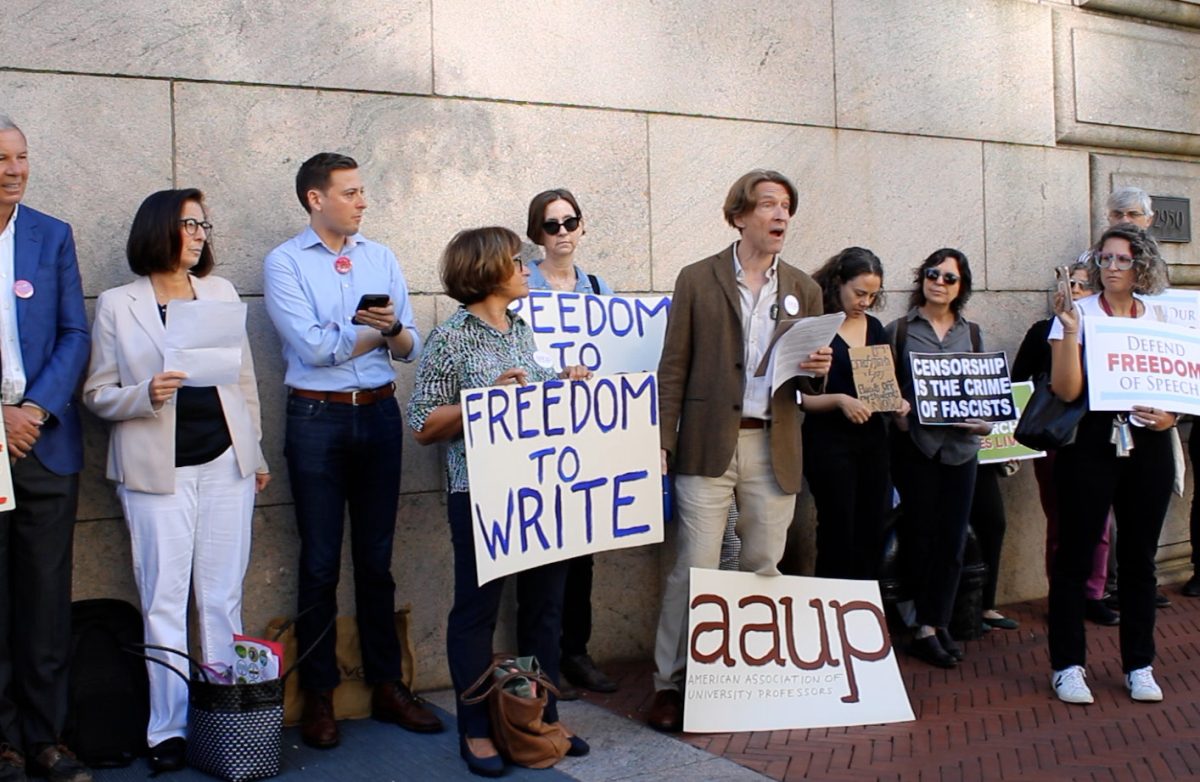
Ever worry why the person you are interested in thumbs-upped your message rather than hearting it? Can you hear that inner voice whispering the worst of negative thoughts into your mind? Most importantly, do you wish you could get control of this self-doubt and live without the pressure of pleasing others? Meg Josephson ’18 has the answers to these questions.
On Monday, September 8, over 100 Hamilton students, parents and alumni came together for “Are You Mad at Me?: How to Stop Focusing on What Others Think and Start Living for You,” a virtual Hamilton talk featuring Meg Josephson. As a licensed psychotherapist and author of her New York Times Bestseller book translated into 17 languages, Josephson shared personal stories and insights related to her role as an author and professional. The talk explored why pleasing others might not be a personality trait but rather a survival mechanism that can well be overcome. Josephson’s presence is the first virtual Hamilton talk this year in line with the Graduates Of the Last Decade (GOLD) series. These alumni spotlights seek to enhance mental health through moderated discussion and a question and answer section. After her time at Hamilton, where she double-majored in Psychology and Hispanic Studies, Josephson obtained her Masters of Social Work with a focus on Advanced Clinical Practice from Columbia University. Josephson’s social media presence is also non-negligeable, with close to half-a-million followers across her various online platforms.
The virtual talk opened with Josephson’s inspiration behind writing her book. While working a full-time psychotherapist job, Josephson was compelled to “write something that was missing in the psychology space: namely, putting language to people pleasing as a survival response and example of self-abandonment.” She wanted a book that would have served her fresh out of college, where she was unable to “understand the fond response, people pleasing and the signs I might be stuck in it.”
When explaining the core principle of her book, Josephson outlined the body’s four responses to a threat: fight, flight, freeze and fold. While the first three might be self-explanatory, the fold response, a purely unconscious response, is less frequently addressed in everyday life. Josephson explains fold as “appeasing a perceived threat by proving yourself to the threat.” Unlike the other responses, the fold response is rewarded in society as early as childhood, when parents tell their children “you’re such a good boy/girl.” Josephson argues that the fold response is critical in certain situations, like having to appease a boss to get a raise or surviving under an oppressive government regime. Nonetheless, the fold response is problematic when it becomes “our default way of being, where we carry it into relationships and where we are unsafe without it. Josephson adds that “when we do it all the time, we are hyper vigilant, we leave a party or dinner and replaying everything we say landed properly, leads us to overextend and silence our emotions, it can be exhausting. We are only supposed to be in this survival state a few minutes at a time, but we are in this state for decades.”
Stemming from a family that “had loving moments but also volatility and unpredictability,” Josephson’s relationship with her parents was foundational in her understanding of people pleasing nowadays. A father who struggled with addiction and a mother who coped with emotional distancing and dissociation led Josephson to be hyper in-tune with what her parents were feeling all the time. Yet, when she arrived at Hamilton, her vision on people pleasing shifted: “At Hamilton and post-grad, I noticed I was still having this people pleasing feeling in my body, less useful than previous, where I constantly analyzed people. My perspective changed because my body was stuck in the past and I needed to break free and live in the present.”
A central aspect of Josephson’s book involves breaking down the six archetypes of people pleasers. They include the peacekeeper, who is focused on the inner harmonization of relationships and being hyper in -tune with other people; the caretaker, who fulfils a guardian’s role in compensation for a parent’s inability to provide; the performer, who finds safety in others by clowning and keeping their authentic selves at a distance from people; the perfectionist, whose value derives solely from the golden child mentality; the chameleon, who morphes themselves depending on the social context and finally the lone wolf, who avoids attachment and subsequently potential disappointment. Josephson stresses that “there is a thread connecting every archetype—I disconnect from myself to please others.”
While childhood, personal trauma and marginalized identities can factor in shaping our people’s pleasing tendencies, Josephson outlined solutions to break free from the fold survival mechanism. For instance, “insert that pause when your inner voice speaks to you, so you start to acknowledge it. We are effectively communicating to the body that we are here right now and are in the present moment. We are not erasing our inner voice, but are becoming aware of it.” Moreover, in the face of conflict, not believing that a relationship is unsalvageable, that abandonment is the only option, and avoidance should be prioritized. Josephson exudes that “conflict, like death, is inevitable. We spend so much time running away from conflict, because we witness conflict being extreme, and we never manage to understand conflict peacefully. The solution to addressing conflict comes by taking accountability and having repair in our close relationships. While it might be scary, this will lead to increased closeness and clarity. We can celebrate mistakes to build stronger relationships.” Finally, Josephson touched on the explanation behind the language of emotion: how young children, especially boys, are not taught to process and acknowledge their genuine emotions due to social stigma. By being honest with others and “taking small bites into discomfort, we slowly increase our tolerance, helping one feel safer expressing their feelings, she said.”
In concluding her talk, Josephson highlighted the importance of awareness in enacting meaningful progress past a dependency on the fond response. “Awareness is central to healing—by understanding what we do and reacting to who we have been, we can change for the better.”
















